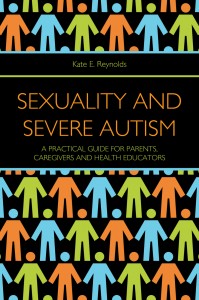
A few weeks ago my brother was using a urinal in a public toilet when a young adult male strode in, and took his trousers and underwear down to do the same thing. From his demeanour and use of language, it was clear this man had a moderate level of autism. Several months ago I was in a shopping mall when a young man started masturbating as he watched some young women, while what appeared to be his mother or carer tried to stop him. The incident caused quite a disturbance, ending when security was called. These two events demonstrate how sexuality can impact on everyday life – and not in a positive way.
Trawl through most autism websites and you’ll find an array of issues relating to sexuality. These can range from specific problems about those who are already adolescent, to the on-going conversation about whether or not we should sexually educate autistic children at the more severe end of the spectrum. Despite the broadness of the issues, one thing is clear: sexuality is a subject with which all parents and caregivers of autistic children have to grapple.
As the mother of a son who was considered so disabled with autism that the consultant informed me he would be in an institution within a year of diagnosis, I attended a study day about sexuality. Interestingly the day was specifically for parents of teenage autistic children, no younger. For me, this was far too late to start discussing with children the ins and outs, so as to speak, of sexuality. Most parents came to the day with specific sexual issues they were having with their children and often had experienced for some considerable time. Over half those who attended wanted help with issues relating to inappropriate behaviours in public while other problems included pregnancy, sexually transmitted infections and whether or not their child should be ‘encouraged’ sexually at all. I remember feeling that the generic session we received answered few, if any, of these questions and there was a severe lack of resources on the market to enable parents to tackle issues surrounding sexuality.
Sexuality and higher functioning autism is widely addressed in numerous books. The more severe end of the spectrum has a dearth of such information. Most relevant information is buried in literature about learning disabilities and learning difficulties and many parents of severely autistic children do not consider their children to be in this category. Although there is some useful information about severe end autism and sexuality, it is presented as teaching packs, which some parents/carers can find less easy to access than reading a book. In my experience, parents/carers are largely exhausted and need an easy and accessible way of conveying this important information to their children.
I wrote ‘Sexuality and Severe Autism’ to fill what appeared to me to be a void. I take readers through some of the main discussions such as why it is crucial to discuss sexuality with more severe end autistic children/young people. I try to put our current situation in context, recognising how far society in the UK has come, but acknowledging that much more needs to be done to truly enable our children to be fulfilled as far as is possible in terms of their sexuality.
Drawing on perspectives of parents/carers from research and personal experience, I examine examples of main issues around sexuality. I divide the book into separate chapters about males and females and try to give solid guidance about how to introduce, discuss and manage issues. The book promotes laying the foundations for future discussions about sexuality from early years, but is also designed to help those who have older children who already are presenting with issues around sexuality. The final chapter of the book deals with working with other people, such as teaching staff and those in social services.
Inevitably, I can’t cover all issues for all those concerned with people with more extreme autism. I hope this will be the start of a flow of books addressing similar issues. One last point: the term ‘severe’ autism is relative and subjective. I chose the title, having discussed it with numerous parents/carers, who all believed they had a ‘severely’ autistic child – yet each of their children had unique skills and deficits. I would suggest that, if your needs for sexuality teaching are not covered by the existing literature, you delve into my book.
Kate Reynolds is the author of Sexuality and Severe Autism and Party Planning for Children and Teens on the Autism Spectrum both published by Jessica Kingsley Publishers.